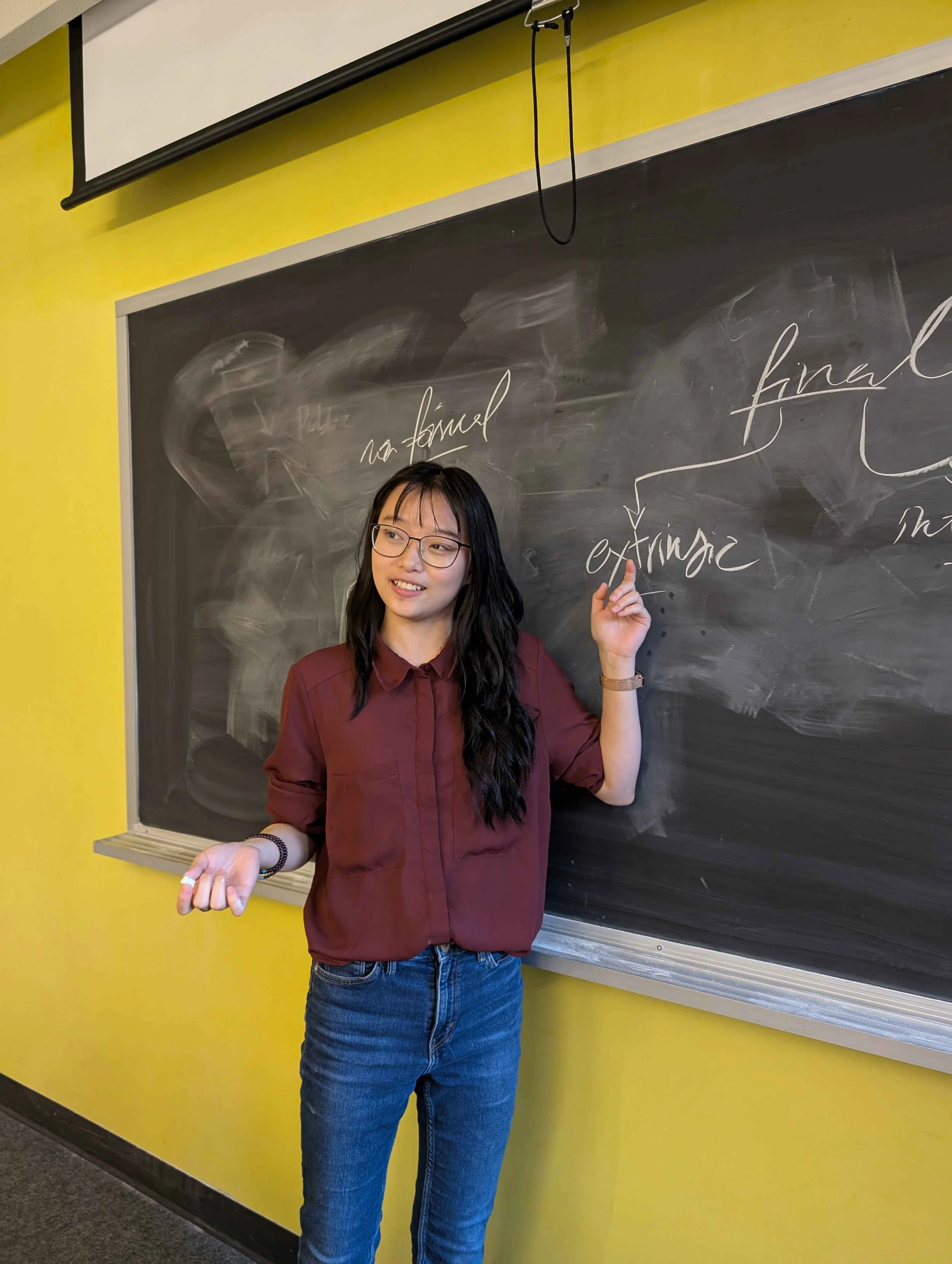
Preparing youth for the future through philosophy
Philosophy For Youth provides engaging programs to Ontario youth teaching critical thinking, logical reasoning, and key topics in philosophy. We host interactive workshops, thought-provoking discussions, and accessible educational resources. We believe that fostering these skills in young minds empowers them to navigate complex life challenges and become thoughtful, informed citizens.
Our Approach
1 Logic
We believe that good reasoning is the foundation of a good education. To this end, the approach we adopt to teaching philosophy frequently involves using inference rules, argument reconstruction, and argument diagramming. Students should be able to reason well not just deductively, like in academic philosophy, but also inductively and abductively, which applies to our everyday lives.
2 Concepts
We emphasize learning higher-level, widely applicable concepts rather than specific philosophical views. For example, when teaching moral philosophy, we have a greater emphasis on students applying and understanding higher-level concepts such as rights, duties, and consequences rather than focusing on particular views. See, for example, Hasko von Kriegstein’s “Moral Vocabulary Approach”.
3 Immersion
We not only aim to provide students with rigorous, skills-first instruction, but we also strive to create memorable and enjoyable learning experiences that will deeply entrench these skills in their minds. So, we place great emphasis on engaging, immersive learning activities, such as simulations and debates, that encourage critical thinking and collaboration among peers.
Meet the Team
-

Victor Chung
Victor is a Teaching Assistant in the Department of Philosophy at the University of Toronto. He was formerly a Race, Ethics, and Power Project Fellow at the University of Toronto Centre for Ethics. His research interests include political philosophy and the metaphysics of time. He has presented his research at various academic conferences, including at the Berlin Social Science Center, the University of London (UK), KU Leuven (Belgium), and the American Philosophical Association. He has served as a judge at multiple Ethics Bowl Canada competitions, giving feedback to high school ethics bowl teams.
-

Fallon Taylor-Kanary
Fallon recently graduated from the University of Toronto, receiving her Honours Bachelor of Arts as a philosophy specialist. She is interested in learning how philosophy may be made more accessible to general audiences and is passionate about the value of such pursuits. Fallon was first introduced to philosophy toward the end of her high school education and plans to continue her studies in graduate school. Her research interests include social and political philosophy, particularly feminist philosophy, with a current emphasis on ethics and theories of well-being.
-

Coye Zhou
Coye studies at the University of Waterloo, where she is working towards a co-op degree in philosophy. Prior to university, exposure to philosophy gave her the chance to develop many skills that she continues to practise every day: reading carefully, writing clearly, and analyzing issues from multiple perspectives. She is passionate about teaching and helping others benefit from learning philosophy the way she did. Her favourite philosophy topics include art, language, and justice.

